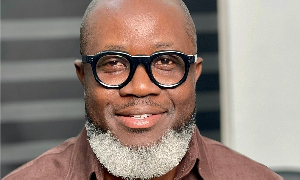: the indispensable dispositional supports which lead to political prosperity
By Solomon Appiah
Those who refuse to learn from history are bound to repeat the mistakes of history. Having lived and studied on 3 continents, I have developed a certain perspective on governance which I would like to proffer. I studied public administration and I am now concluding a program in public policy. My attraction to subjects such as these was to figure out the challenges plaguing my continent and to see how I could contribute my little quota to its betterment. One of the most profound things I have learned about leadership, governance and politics is that righteousness (i.e. behaving rightly) and justice (i.e. fairness or equity) exalts a nation but wickedness or immorality retrogresses and abases it. I have also learned that when the righteous are in authority, the citizens rejoice: but when the immoral rule, the people mourn. On the North American and European continents I have witnessed firsthand nations in this region of the globe increasingly retrogress and lose both economic and political power to other nations such as the so-called emerging economies but even more noticeably to China. How did this occur? For an answer let us glean from some ancient wisdom upon which the United States of America was established. This wisdom comes from a founding father of the United States who served as commander-in-chief of the Continental Army during the American Revolutionary War that resulted in Independence for America. He presided over the convention that wrote the American national Constitution. He was one of the signers of that constitution. He also presided over the framing of the Bill of Rights and was the first President of the USA. He ended up serving two consecutive terms as President. After years of service to his nation, he gave a farewell address in 1796. In this address is contained the word of wisdom that I believe if any nation were to adhere to, they could parallel the success of the USA within the first century of its establishment. The illustrious statesman was no other than George Washington. Towards the conclusion of his farewell speech he declared, “Of ALL the dispositions and habits which lead to political prosperity, religion and morality are indispensable supports”
What a statement! After giving 45 years of his adult life to American public service, this was his summation of what it takes for a nation to be successful. Was he right? From U.S. history when religion was intact and morality was also upheld in the public psyche, the nation prospered and had no deficits. The downward spiral only occurred when leaders of this great nation decided to turn their backs on these two dispositions supports for success espoused by this founding father. How about China, soon to be world superpower?
According to David Aikman former senior Times correspondent, China for decades has been researching the source of the West’s dominance and their conclusion was that the answer lay not in their economics or education or even government but rather in their religion which promoted morality. I would contend that the brilliant German sociologist who authored the famous book titled, “The Protestant Ethic and the Spirit of Capitalism” would have agreed with China’s hypothesis if he were still with us. China for decades has been making efforts to cash in on the moral and ethical dividends to be gained from religion. The strength of an emergent China is not based solely on its humongous workforce. An immoral populous workforce would simply drive any economy into the ground. For more on China and its courtship of religion, I published on it here:
http://www.fairobserver.com/article/religion-peace-and-prosperity
Converse to China, a review of a Harvard Professor Nail Ferguson’s book in the Guardian, “Civilization: The West and the Rest” reads, “the decline of religion in Europe has led to Europeans becoming the "idlers of the world" (while the more religious US has remained hard-working). Interestingly, Ferguson also argues that China's embrace of hard work is partly because of the spread there of Protestantism”. Before the publication of this book David Aikman former senior Time magazine correspondent had written about such themes in his book entitled “Jesus in Beijing: How Christianity is Changing the Global Balance of Power”.
What then is religion and morality?
What is morality? According to Webster’s 1828 dictionary, Morality is the doctrine or system of moral duties, or the duties of men in their social character; ethics. Mr. Webster goes on to explain that morality includes, “The quality of an action which renders it good; the conformity of an act to the divine law, or to the principles of rectitude. This conformity implies that the act must be performed by a free agent, and from a motive of obedience to the divine will”. From this early definition we see that morality is connected to a belief in divinity. It was only later that later generations developed a morality devoid of divinity but in George Washington’s day, morality could not be separated from religion.
What is religion? According to the same 1828 Webster’s dictionary, “Religion, in its most comprehensive sense, includes a belief in the being and perfections of God, in the revelation of his will to man, in man's obligation to obey his commands, in a state of reward and punishment, and in man's accountableness to God; and also true godliness or piety of life, with the practice of all moral duties.”
With these two dispositions espoused by George Washington as indispensable supports to political success defined now let’s ask ourselves if our world truly still espouses these dispositions or rather makes light of them. If not what has been the consequences?
Consequences of immorality
Britain's Chief Rabbi Lord Jonathan Sacks wrote in an article in the Wall Street Journal on the decay of morals, “the Judeo-Christian moral code was jettisoned” about a century ago. For him, the consequence of independence from religion and its moral code is the high price of immorality that governs much of the British society today. Here immorality includes all that is not right and just such as corruption, disrespect of young for the elderly, unbridled greed, lack of integrity and disregard for the consequence of our individual actions on others in the global family etc. This dearth of morality manifested in various forms has is bringing the West or Global North to its knees fast. Even financially they are struggling. At the root of the financial crises is simple greed and irresponsibility i.e. immoral fiscal behavior.
Way forward
Ghanaians are fond of importing trends from the Global North i.e. from Europe or America. While this is OK, we must be careful what we import. There are many things we can learn from the Global north and the global family at large but a discrimination against religion and a disintegration of morality is definitely not one of them. Such imports will cause us to end up where they are destined to end up if changes are not made and fast.
The penalty for refusing to speak up
Plato is accredited with the following quote: “One of the penalties for refusing to participate in politics is that you end up being governed by your inferiors”. In society there are many groupings. Some are a majority and others a minority. Sometimes a minority start to agitate for certain immoral laws or behaviours. What happens when the majority keep passive and stay silent? The minority will have their way and we’ll end up being governed by our inferiors. It’s the same when the majority agitate for the promotion of immorality? The minority must speak up or suffer the consequence of living in a society whose laws are defined by the immoral—those without a sense of right or wrong. It is time Ghanaians forget about blind allegiance to political parties and elites and choose a stand for what is right and just in all our decisions. For example when we allow politicians to buy our votes with money and gifts, we are promoting a culture of corruption and backwardness. You know why? Because we have sold our virtue and vote. Furthermore if we do this, when the politician assumes office, they will try to recuperate the monies spent during the political campaigns via all sorts of dubious means. They will do so feeling justified because the citizens took their bribes. To sell your vote is to condemn Ghana to a repetitive destructive cycle of backwardness. Instead of politicians buying votes, they should learn to be moral and hence rather compete justly and fairly by setting forth ideas that promise to advance the great nation of Ghana. We should vote for them based on the wisdom of their ideas and not based on how much they bribe us to vote for them.
A Government by the people
If Ghanaians do not want to end up being governed by their inferiors either in the NDC, NPP or other political parties, they better start getting involved in voting and contributing their voice to the whole debate of morality in Ghana and adherence to the rule of Ghana’s laws—not any imported laws or principles. Not only should we vote but when a person stands up for what we believe in, we should not hang him or her out to dry but actively add our voice to theirs because the combined voice carries greater weight.
Practically speaking, if a person writes an article that bears witness with our convictions on facebook or some other media platform, let us patronize it or digitally “like it” and share it on our pages. This is one way to make your digital voice heard. Same with call-in radio programs! Call in and make your voice heard concerning the issues you identify with. I study public policy and at a basic level a policy could refer to an action or inaction, a decision or indecision. Your silence is just as potent as your participation except that your silence empowers your opponent.
Conclusion
If Ghanaians stay passive and quiet and therefore increasing power is given to the empty barrels who make the most noise, then we have no one to blame but ourselves. Youth of Ghana, we make up the majority of the populace. We were born for such a time as this. We might as well stand up and be counted—making our voice heard in our homes, districts, constituencies and work places. Fear, insecurity and worry about what others would think about us if we are vocal about our convictions is not an option just as it was not for those who gave us independence.
One does not have to be perfectly moral to vote for morality, moral decisions/policies and moral leaders. In fact I would argue that no one is perfectly moral on this side of heaven. I am by far not the most righteous person I know. In fact, I would side with Apostle Paul of the Christian faith and agree to the contrary but I do not make excuses for my shortcomings and ask the laws of the land to be changed to accommodate my unhelpful habits. Neither do I make a practice of my shortcomings. Instead I make effort to change so that I can be a productive member of society who contributes to building the ethical and moral fibre of the society so that my country can prosper. So do not feel liuke you need to be perfect before contributing to right and just governance. If you are silent, evil will reign. When the moral or those who seek to live in a moral society remain silent, immorality will reign. When morality and religion are overthrown, there will be no supports for political or economic prosperity. Make your voice heard.
Opinions of Tuesday, 23 October 2012
Columnist: Appiah, Solomom














